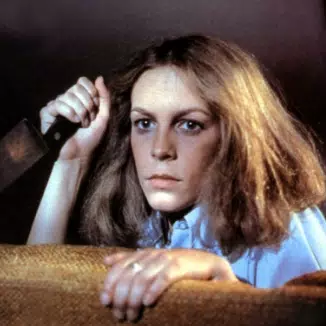After watching the nearly three-hour-long Mission: Impossible – The Final Reckoning in theaters, I breathed a long sigh of relief, thinking, “Finally, it's over.” I don't mean to imply that the eighth Mission: Impossible was pure boredom, but that was my immediate reaction after seeing Tom Cruise—the star and soul of the series—perform death-defying stunts: falling from dizzying heights to the earth below.
A prolonged cinematic spectacle and the invincible heroic image of Agent Ethan Hunt bombarded me from the massive IMAX screen. While I enjoyed the surreal experience, I also felt some resistance. As a viewer, I’ve long grown weary of these male-hero mythologies. However, I must admit that the movie theater serves as the perfect setting to create spectacle and echo classic myths. Inevitably drawn into the film's meticulously crafted tension, I kept holding my breath at all the right moments, waiting for Ethan and his team to perform miracles and save the world. When the theater lights came up, I could finally return to reality—a world that might be ordinary and mundane, but one in which I was no longer just a passive spectator under the film's spell—and be a thinking person again.
Simply put, The Final Reckoning is a textbook example of a big-screen blockbuster—perhaps even the perfect one. It's a masterful display of the art of creating a virtually real world that completely immerses viewers. The art has made Mission: Impossible one of the highest-grossing film series ever, which is why I could hardly believe it when the marketing campaign loudly proclaimed that The Final Reckoning would be the last installment. Why would Paramount give up on such a hugely profitable franchise, with global box office earnings already exceeding $4 billion?
It all became clear after some digging: 'final' in the title actually means it is the last installment centered around Ethan Hunt, Cruise’s character. “It’s the final! It’s not called ‘final’ for nothing.” Cruise confirmed. But that clearly doesn’t mean the Mission: Impossible franchise is ending. The reason for promoting The Final Reckoning as the “last one” is simple: marketing anything as the final chapter often draws a bigger crowd to theaters.
Indeed, this strategy seems to be working. The Final Reckoning has already surpassed $500 million in global box office earnings, with its North American opening weekend bringing in nearly $10 million more than its predecessor, Mission: Impossible – Dead Reckoning Part One. This clearly shows that audiences still have strong enthusiasm for the series.
Given the immense commercial value of Mission: Impossible and the way Hollywood studios operate, Paramount Pictures—the owner of the franchise—is unlikely to stop developing the flagship series. Just look at what they’ve done with the Transformers franchise. Despite mounting criticism of those films, Paramount went ahead and released the spin-off Bumblebee and its sequel Transformers: Rise of the Beasts, even after Transformers: The Last Knight received underwhelming reviews and box office results. Now that both spin-offs garnered decent reviews and solid box office returns, how could Paramount simply give up on Mission: Impossible, which remains profitable and one of the best action franchises ever?

Another key factor is the proposed merger between Skydance Media and Paramount Global. In 2023, after dealing with debt and trying to remain competitive, Paramount’s parent company, National Amusements, began exploring merger and acquisition options for Paramount Global. On July 7, 2024, Skydance Media and Paramount Global announced an $8 billion definitive agreement to merge, creating a new entity called Paramount Skydance Corporation. The deal is expected to close in the first half of this year, though as of May 2025, it is still under review by the Federal Communications Commission (FCC).
As you may know, Dead Reckoning Part One and The Final Reckoning both ran into major production issues. The former was hit by the COVID-19 pandemic, and the latter was delayed by the SAG-AFTRA strike. These problems caused huge delays and soaring budgets—Dead Reckoning Part One cost $291 million, and The Final Reckoning reportedly cost between $300 and $400 million. Under such financial strain, Paramount might not have been able to plan the franchise’s future in detail. However, the situation could change once the Skydance–Paramount merger is complete, and Mission: Impossible will surely be their top priority. As noted earlier, neither the old Paramount Pictures nor the new Paramount Skydance would lightly give up on its flagship franchise.
In addition to business reasons, maybe we can consider the storytelling perspective to see why the franchise is bound to continue. Honestly, I don’t think we need to worry about how the next installment will connect to or help wrap up the current story. Regardless of how The Final Reckoning ends, as long as sequels or spin-offs are planned, writers will find ways to continue the story. We’ve only seen examples where stories are split into multiple parts to drive box office returns. No movie sequel is made purely for the sake of narrative closure, since for genre films, sustained profitability is the real motive for continuing the story. That said, I'm still wondering: is there any chance Ilsa Faust’s storyline might continue?

So, will The Final Reckoning truly be the final chapter of Mission: Impossible? The chances are close to zero. The key question isn’t whether more films will be made, but how they will be made. The focus of this “final chapter” marketing is squarely on Cruise’s Ethan Hunt taking his final bow. The biggest challenge for the future will be finding a new star (or team) who can carry the torch and replicate Cruise’s death-defying charisma and global appeal. Will Paramount follow the example of the James Bond series and recast Hunt? Or will they create entirely new characters and spin-offs? The answer remains unclear.
But one thing is certain: as long as audiences are willing to pay, Mission: Impossible’s mission is far from over. And what about Cruise himself? His schedule is already packed (including a planned space movie), but remember—Harrison Ford was still playing Indiana Jones at 80. So never say never—especially in Hollywood.
























































View replies 1
View replies 1
View replies 0